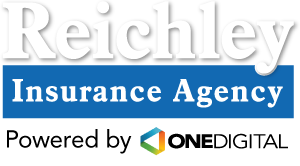How Insurance Agents Can Foster Long-Term Relationships with Clients
In the dynamic and competitive landscape of the insurance industry, cultivating long-term relationships with clients is essential for sustainable success. Beyond just selling policies, insurance agents serve as trusted advisors, guiding clients through life’s uncertainties and helping them protect what matters most. By focusing on building strong and enduring relationships, insurance agents can not only retain clients but also foster loyalty, referrals, and business growth. Here are some strategies for insurance agents to create lasting connections with their clients:
- Listen and Understand
Effective communication begins with active listening and a genuine desire to understand clients’ needs, concerns, and goals. Insurance agents should take the time to ask probing questions, listen attentively to clients’ responses, and empathize with their unique situations. By demonstrating empathy and understanding, agents can build rapport and establish trust, laying the foundation for a long-lasting relationship built on mutual respect.
- Provide Personalized Solutions
No two clients are alike, and their insurance needs may vary based on factors such as life stage, financial situation, and risk tolerance. Instead of offering cookie-cutter solutions, insurance agents should tailor their recommendations to meet each client’s specific needs and preferences. Whether it’s customizing coverage options, bundling policies for cost savings, or offering risk management advice, providing personalized solutions demonstrates a commitment to client-centric service and fosters loyalty over time.
- Offer Proactive Service
Great service doesn’t end once the policy is sold—it’s an ongoing commitment to client satisfaction and peace of mind. Insurance agents should proactively reach out to clients at regular intervals to review their coverage, assess any changes in their circumstances, and address emerging needs or concerns. Whether it’s a policy renewal reminder, a claims assistance offer, or a policy update, proactive communication shows clients that their agent is looking out for their best interests and reinforces the value of the relationship.
- Be Accessible and Responsive
In today’s fast-paced world, clients expect timely and responsive service from their insurance agents. Agents should be readily accessible via phone, email, or in-person meetings and promptly respond to client inquiries, requests, and concerns. By being approachable and responsive, agents demonstrate their commitment to client satisfaction and reinforce their role as trusted advisors in times of need.
- Educate and Empower
Insurance can be complex and intimidating for many clients, but knowledgeable agents can demystify the process and empower clients to make informed decisions about their coverage. Agents should take the time to educate clients about insurance concepts, policy options, and coverage implications in clear and simple terms. By empowering clients with knowledge and insights, agents can build confidence, strengthen relationships, and foster a sense of partnership in navigating life’s uncertainties together.
- Show Appreciation
A little gratitude goes a long way in nurturing long-term relationships with clients. Insurance agents should express appreciation for their clients’ trust, loyalty, and referrals through personalized gestures such as thank-you notes, birthday greetings, or small tokens of appreciation. By showing genuine gratitude and recognition, agents acknowledge the value of their clients and deepen the emotional connection that underpins lasting relationships.
Building long-term relationships with clients is the cornerstone of success for insurance agents in today’s competitive market. By listening and understanding, providing personalized solutions, offering proactive service, being accessible and responsive, educating and empowering, and showing appreciation, agents can create meaningful connections that stand the test of time. By prioritizing relationship-building efforts, insurance agents can not only retain clients but also inspire loyalty, referrals, and business growth for years to come.













